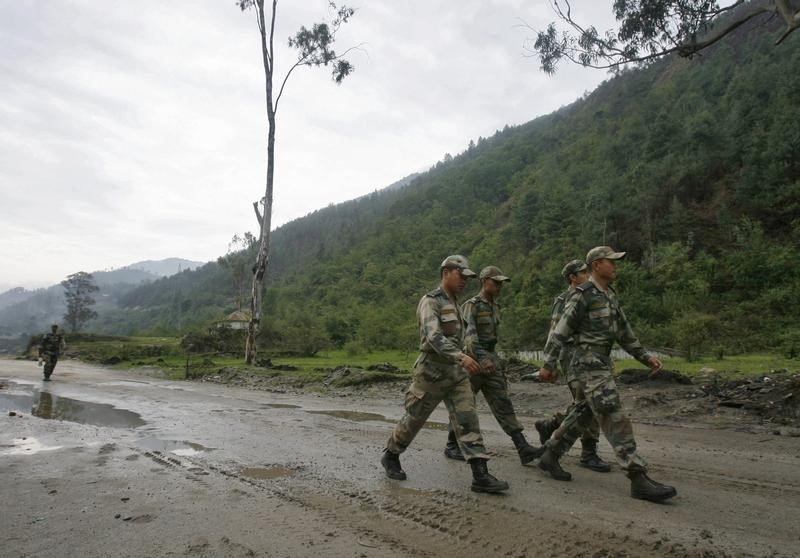BEIJING (Reuters) - China and India have agreed to maintain peace and tranquillity along their Himalayan border while they work on resolving a long-festering boundary dispute, China's foreign ministry said after talks in New Delhi.
The talks are aimed at fixing a dispute over the border that divides Asia's largest nations, part of a push to make progress on the festering row before Prime Minister Narendra Modi visits China.
China's foreign ministry said in a statement released on Monday both countries would build on the results of previous negotiations and push forward in "the correct direction".
"Both sides reiterated the appropriate management and control of the dispute and joint maintenance of the peace and tranquillity of the border region before the border issue is resolved," the ministry said.
As major neighbours and developing countries, the development of relations is good for both peoples as well as for regional and global peace and development, it said.
"Both sides ought to work together to push for practical cooperation in all areas, and further increase coordination on global and international issues."
The talks are the first since Modi took office. The nationalist Indian prime minister is keen to resolve a dispute that has clouded rapidly expanding commercial links. Any progress would throw a positive light on his expected visit to Beijing in May.
However, there is no simple solution to a conflict that largely dates back to British colonial decisions about Tibet.
The disagreement over the 3,500-km (2,175-mile) border led to a brief war in 1962 and involves large swaths of remote territory.
China claims more than 90,000 sq km (35,000 sq miles) disputed by New Delhi in the eastern sector of the Himalayas. Much of that forms the Indian state of Arunachal Pradesh, which China calls South Tibet.
India says China occupies 38,000 square km (14,600 sq miles) of its territory on the Aksai Chin plateau in the west.

In September, the two armies faced off in the Ladakh sector in the western Himalayas just as Chinese President Xi Jinping was visiting India for the first summit talks with Modi.